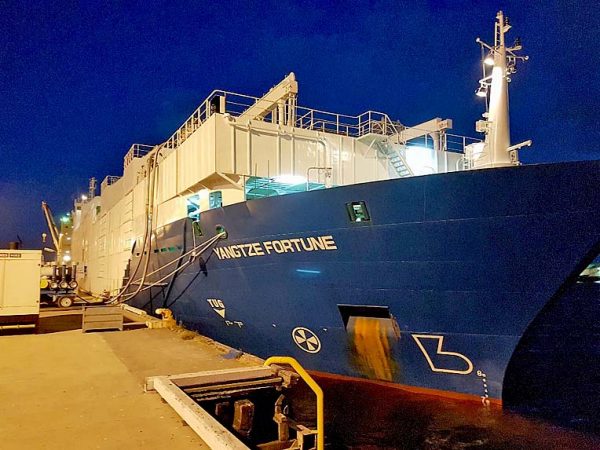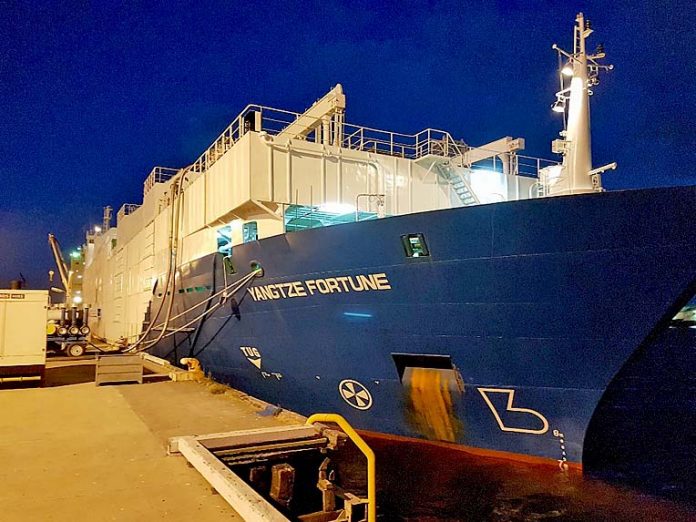
Picture: HARMONY AGRICULTURE AND FOOD
A VESSEL destined to transport around 5000 dairy heifers to China has been docked at the Port of Portland for almost a month with potential livestock traceability issues believed to be reason for the delay.
Live cattle export ship Yangtze Fortune arrived in Portland on August 3 where it has remained, with Port of Portland harbour master Jason Sweetman confirming the cattle were not on board the ship and were never loaded.
The cattle are reportedly being cared for at feed lots near Portland while the issue is investigated.
“There has been no viable documentation present and we are still waiting to get the go ahead to load the cargo of cattle,” Mr Sweetman said.
“We do not know if or when approval papers will be in order.
“I can not speculate on what is now going to happen.”
Mr Sweetman said the matter was not a concern for the port.
“Ships often have to wait for their cargo extended periods of time,” Mr Sweetman said.
“It happens all around the world, not just here.”
Australian Livestock Exporters Council (ALEC) chief executive Mark Harvey-Sutton said the exact details behind the delay were under investigation.
“When a consignment is halted by the department, this is drastic action,” Mr Harvey-Sutton said.
“It appears the department, along with Agriculture Victoria, are investigating integrity and traceability with the shipment and that China’s export protocols have been adhered to in relation to this specific consignment.
“These systems are in place for a reason and should be adhered to at all times, as an industry transparency and traceability is essential.
“Obviously the expense to the exporter is huge and our trade relationship with China is important to maintain.
“We hope the department is able to finish its investigation as quickly as possible.”
South Australian Dairy Farmers Association president John Hunt moved to reassure the public over the cattle’s welfare.
“The cows would be looked after and would be fed,” Mr Hunt said.
“I know there are strict regulations involved with exporting and obviously those have not been met during this situation.
“I would assume animal welfare would be number one.”
Mr Hunt said many dairy farmers used live exporting as a form of income and mistakes made would fall back on the whole industry.
“We need to be sure it is done right,” he said.
“The export industry is a strong source of revenue and it certainly enhances the industry.








